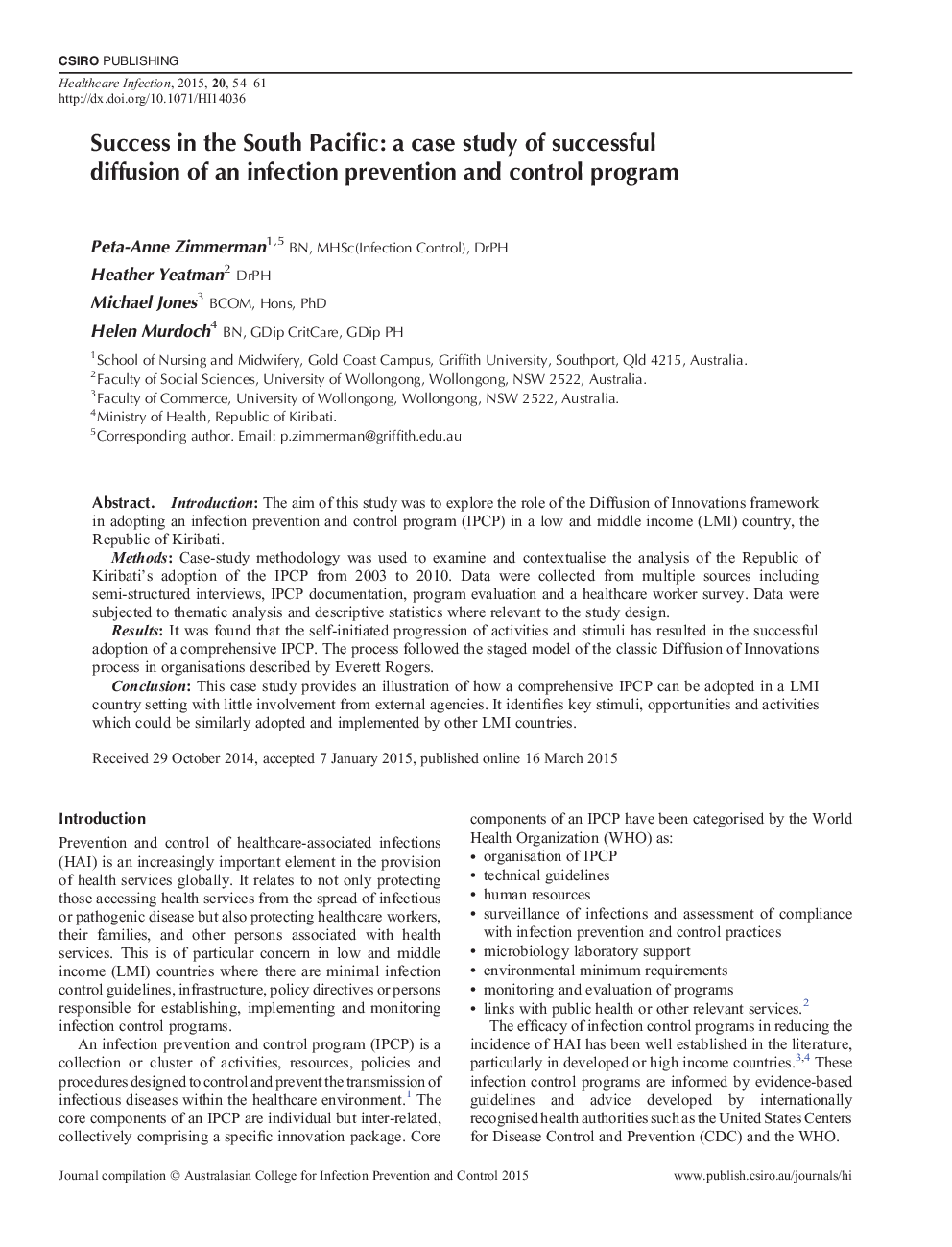| Article ID | Journal | Published Year | Pages | File Type |
|---|---|---|---|---|
| 2683316 | Healthcare infection | 2015 | 8 Pages |
IntroductionThe aim of this study was to explore the role of the Diffusion of Innovations framework in adopting an infection prevention and control program (IPCP) in a low and middle income (LMI) country, the Republic of Kiribati.MethodsCase-study methodology was used to examine and contextualise the analysis of the Republic of Kiribati's adoption of the IPCP from 2003 to 2010. Data were collected from multiple sources including semi-structured interviews, IPCP documentation, program evaluation and a healthcare worker survey. Data were subjected to thematic analysis and descriptive statistics where relevant to the study design.ResultsIt was found that the self-initiated progression of activities and stimuli has resulted in the successful adoption of a comprehensive IPCP. The process followed the staged model of the classic Diffusion of Innovations process in organisations described by Everett Rogers.ConclusionThis case study provides an illustration of how a comprehensive IPCP can be adopted in a LMI country setting with little involvement from external agencies. It identifies key stimuli, opportunities and activities which could be similarly adopted and implemented by other LMI countries.
